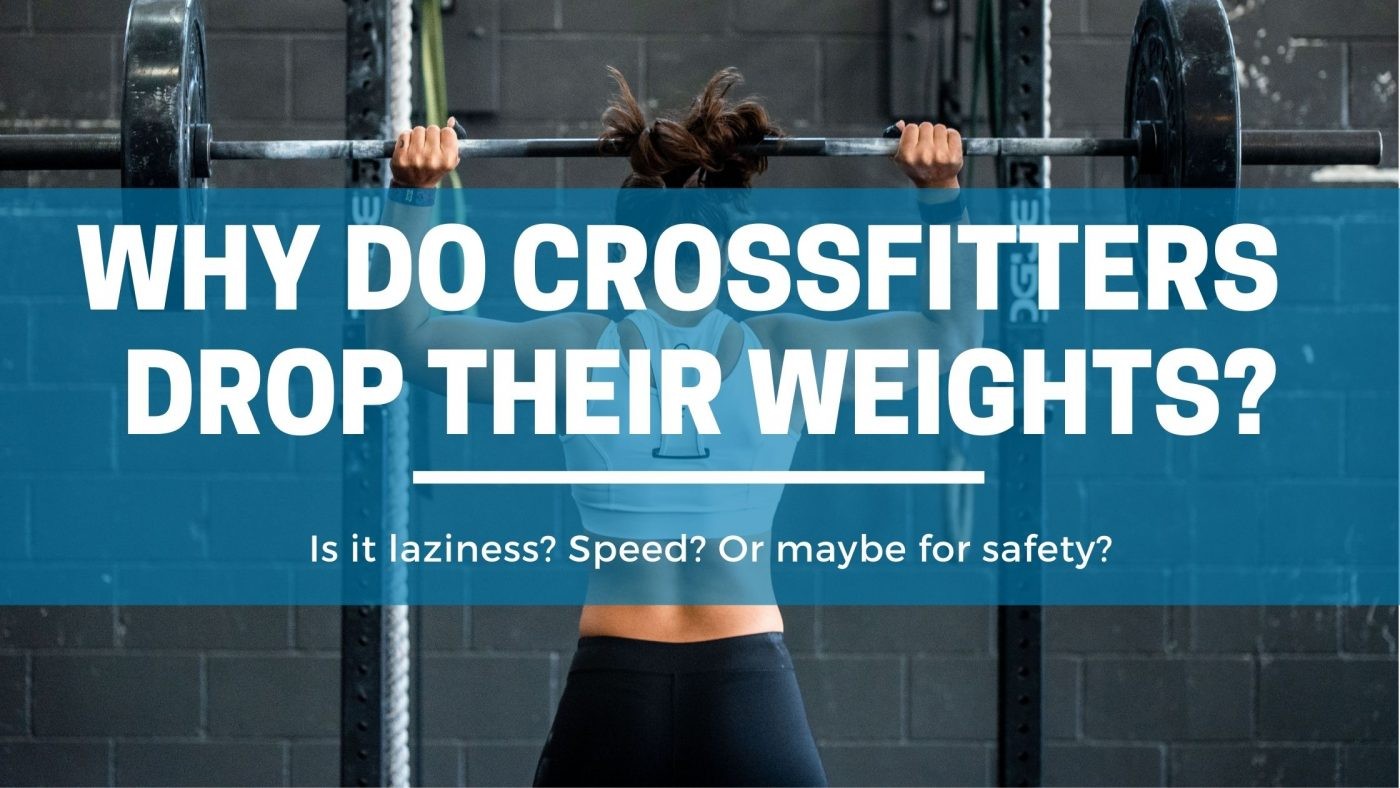No products in the cart.
Education
Why do Crossfitters Drop Their Weights
Anyone new to crossfit will notice one major difference between what goes on in a CrossFit gym (box) and a regular gym. CrossFitters drop and throw around their weights/barbells, while normal gymgoers (usually) carefully place them back down again.
But why is this? Is it laziness? speed? or maybe for safety?
Dropping weights is a safety issue. You can get hurt while attempting a lift and things go haywire. In a situation like that, dropping the weights is essential. But there’s a big difference between a necessary drop and one you don’t need.
What’s the correct etiquette for dropping your weights?
There are people who just plain old love dropping their weights. They enjoy the drama that weight-dropping causes.
It usually causes a deafening crash when the weight hits the ground. Floorboards creaking can take attention away from the most interesting playlist.
Therefore, there are certain rules to follow for dropping weights:
- Never drop kettlebells and dumbbells: Both bounce easily and can hurt people. Kettlebells also get damaged when you drop them.
- Only drop barbells: Manufacturers built barbells to handle drops. This doesn’t mean you should drop your barbell after every rep. Not only does this damage your equipment, but it also creates a dangerous environment for other fitness fans.
Why Do Crossfitters Drop Their Weights?
Crossfitters are some of the most athletic people on the planet. But, they have a controversial history with dropping weights.
Some say dropping weights isn’t proper technique and form. Some say it is.
When you’re working out at that level, it’s hard to control heavy weights past a certain point. You can probably lift them, but lowering them is a different story.
When they lift more than their bodies can handle, they have no choice but to drop the weights. Any other option causes serious safety issues.
When can you drop your weights?
There are certain times where it’s appropriate for you to drop your weights. But all the reasons revolve around safety:
- Overhead dropping: When you have lost your balance or control of the lift. Is also acceptable if you can tell your lift is failing.
- Shoulder height dropping: It usually happens later in the workout, when fatigue rears its head. At these times, it’s hard keeping your abdomen tight. They’re unable to provide the support and stability you need. At these moments, it’s safer to drop the bar. Just keep your hands on the bar to stop it from bouncing.
- Waist height dropping: You can drop from this height when your body and core cannot support you. But remember to keep your hands on the bar to prevent rolling or bouncing.
It’s also okay to drop the weights:
- If manufacturers designed the weights for this activity
- The floor or platform of the gym easily handles dropping weights
- If your gym allows this passtime
Some considerations when dropping your weights
Dropping weights is fun and safe when done correctly. Still, there are some things to take into consideration when doing it:
The culture of your gym
Dropping weights is a divisive conversation. It is usually up to the individual gym to create their policy towards dropping weights.
How much space there is
Let’s say your workout space has someone in it. Dropping your weights may cause injury to any of your neighbors. Even if your gym allows dropping weights, pick a quiet time so you don’t put anyone else at risk.
The heaviness of the weights
Many think lifters drop their weights because they are too heavy. When doing heavy lifting, it’s impossible to place your weights down softly.
Instead, try to slow or control your descent as the barbells approach the floor. This will make sure you don’t make others uncomfortable or scared a dumbbell will come flying their way.
- why do CrossFitters drop their weights?
- What’s the correct etiquette for dropping your weights:
- Should you drop the bar when deadlifting
- Should you drop the bar when snatching
- Should you drop the bar when doing cleans & clean & jerks
- Should you drop the bar squatting
- Is it ok to drop my weights: training vs. in competition?
- dropping weights: barbell vs. dumbess vs. kettlebells. What’s ok?
Additional considerations
If the speed of your workout concerns you, dropping weights is not the best option. Dropping the weight and resetting slows you down. The fastest route is to just hold on to the bar.
If you’re tired and lack the energy to lower a barbell, dumbbell, or kettlebell prop, use ladder weights. To get stronger, you must try to lift your weights and lower them as well.
Crossfitters drop their weights because they love to push themselves with heavy lifting. But there are certain considerations to take before you follow in their footsteps. Absorbing and implementing the above tips will ensure a safe and productive workout.

